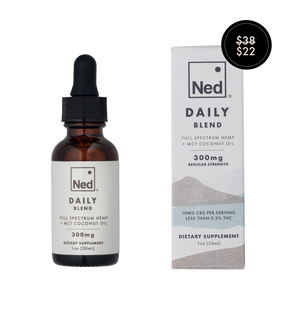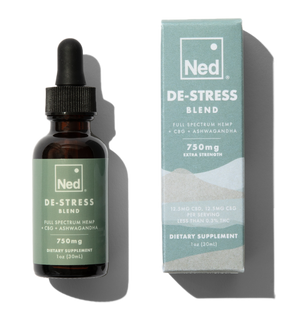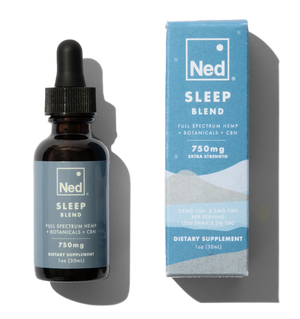THE ENDOCRINE SYSTEM
The endocrine system consists of glands that produce hormones regulating many bodily functions like metabolism, growth, and reproduction. Hormones act as messengers, coordinating body responses. Imbalances can cause disorders like diabetes or thyroid issues.
How To: Improve Your Hormonal Balance
As the days get longer, our bodies also experience a shift in energy and vitality. Spring is the perfect time to look inwards and move into the rhythms of nature and nurture our hormonal balance. Our endocrine system consists of several important organs and glands which make and send out hormones. The hormones are the messengers in our bloodstream, which can adjust crucial functions such as metabolism and reproductive health. When out of balance, it can significantly affect the way our bodies function. While this system is very complex, our lifestyle and diet are fundamental in helping it function properly. Regardless of age or gender, there are many steps we can take to nurture our hormonal health. Keep scrolling to find out more.
Daily Blend
30mL (1oz)
Simplify your daily ritual with Daily Blend, a single all-natural primer for better health and wellness. Slow crafted from the world’s purest USDA certified organic hemp, Daily Blend helps you build your health on a strong foundation by bringing your body back into balance (think of it as restoring your body to its optimal factory settings!) and providing functional support for sleep, stress, and pain + inflammation.
60-day Stress Free Guarantee
Simply place your order. Your 60-day trial begins from the day your order is delivered.
Start using your Ned product. Our Customer Happiness Team is here to give you all the guidance you need.
If you want to break things off, no hard feelings. Contact our Customer Happiness Team and they’ll help you out. Simple.
**Valid for one product at a time - bundles not eligible
mellö Magnesium
30 serving pouch
Magnesium plays a role in over 300 essential functions in the body, including helping to maintain healthy energy levels, muscle function, and a balanced mood. mellö Magnesium Superblend® is a thoughtfully crafted formula made to support your daily wellness routine.
60-day Stress Free Guarantee
Simply place your order. Your 60-day trial begins from the day your order is delivered.
Start using your Ned product. Our Customer Happiness Team is here to give you all the guidance you need.
If you want to break things off, no hard feelings. Contact our Customer Happiness Team and they’ll help you out. Simple.
**Valid for one product at a time - bundles not eligible
1. Diet
Proper macro and micronutrients are vital for maintaining healthy hormones. Consuming healthy fats, prioritizing proteins and focusing on whole foods, can make huge waves in keeping you feeling your best. Eating within fasted windows also allows our bodies to go into repair mode and clean itself up. Try eating a light early dinner around 5-6pm and fast until breakfast the next morning! Here are some key nutrients to focus on:
- Vitamin B6 helps with producing hormones, modulating neurotransmitters, and removing circulating estrogen. Try adding fish, chicken, garbanzo beans, and sweet potatoes into your meals.
- Iodine is very important for our thyroid glands, brain development, hormonal balance, and a healthy metabolism. It is hard to get enough of this mineral in our foods, but it is very rich in seaweeds. Start adding kelp or dulse to your soups, broths, or even tea blends for a healthy daily dose!
- Magnesium is needed to balance cortisol levels, the stress hormone. Dark leafy greens, nuts, seeds, whole grains, and dark chocolate all contain magnesium. Getting enough from diet alone is hard with the state of our soil. A quality supplement such as mellö can help maintain functional levels.
- Omega 3’s are important to try to consume daily to support hormone production and a healthy metabolism. Small fatty fish (anchovies, sardines, salmon), flaxseeds, chia seeds, and walnuts are all rich sources of healthy fats!
- Liver supporting foods can help with the natural detoxification process and remove circulating hormones that may be stuck in our bodies. Arugula, artichokes, beets, rosemary, daikon, and chicory can gently help the liver and lymphatic system flush out daily toxins. Here for more tips on cleansing your liver.
De-Stress Blend
De-Stress Blend is a natural path to stilling your waters and getting back to easier times. This blend is dominant in CBG – often referred to as the mother of all cannabinoids - and CBD, both extracted from the world’s purest full spectrum hemp and features a botanical infusion of ashwagandha, cardamom and cinnamon.
60-day Stress Free Guarantee
Simply place your order. Your 60-day trial begins from the day your order is delivered.
Start using your Ned product. Our Customer Happiness Team is here to give you all the guidance you need.
If you want to break things off, no hard feelings. Contact our Customer Happiness Team and they’ll help you out. Simple.
**Valid for one product at a time - bundles not eligible
2. Stress
High stress levels can lead to cortisol spikes which strain your adrenal glands. Over time this can throw everything out of balance, so finding time in the day to unplug and be present can make a big difference. Try meditation, nature walks, and spending time with those you love.
Box Breathing is a simple and easy technique that we can all employ daily to calm the mind and activate our parasympathetic nervous system. It is a 4-step process: Breath in for 4 seconds, hold your breath for 4 seconds, breath out for 4 seconds, and hold for 4 seconds again.
Ashwagandha is an herb that is prized for modulating cortisol levels when taken over time. It works by resetting the natural circadian rhythms, and supporting the endocrine organs and adrenal glands to better deal with the daily stresses’ life throws at us. You can get your daily dose of ashwagandha in our bestselling De-Stress Blend.
Sleep Blend
Sleep deeper, longer and wake up refreshed with Sleep Blend — the natural path to deeper sleep. This organically made tincture tincture blends CBN — a powerful cannabinoid that promotes sleep, full spectrum hemp from the purest single source hemp flower extract and organic botanicals used in traditional medicine.
60-day Stress Free Guarantee
Simply place your order. Your 60-day trial begins from the day your order is delivered.
Start using your Ned product. Our Customer Happiness Team is here to give you all the guidance you need.
If you want to break things off, no hard feelings. Contact our Customer Happiness Team and they’ll help you out. Simple.
**Valid for one product at a time - bundles not eligible
3. Sleep
Quality sleep is medicine in itself! When we fall into a deep sleep, the body works hard to repair itself. We spend nearly a third of our life sleeping, and studies have shown lack of sleep leads to chronic diseases. Proper reproductive, metabolic, endocrine, brain health and more rely on us getting not just the right amount (7-8 hours) of sleep, but good quality sleep. This is all easier said than done in an electronic world. Supporting your body by focusing on circadian rhythms, movement, diet, and supplements can help reset your sleep cycles.
4. Herbal Support
Herbal medicine has been used for centuries all over the world to support the natural transition of hormones. Herbs can help to regulate energy, sleep, reproduction, lower stress, and more!
Milk thistle is known for its liver detoxification properties and for supporting the immune system. It can remove excess hormones and unwanted toxins, so they do not recirculate in the bloodstream.
Red Raspberry Leaf, Nettles, and Red Clover contain a high vitamin and mineral content along with polyphenols. They can work together to support not only your hormones but the whole body. They synergistically are very powerful in assisting in modulating the hormones during all stages of life! You can find all these herbs in our bestselling Balance Blend.
Adaptogens are herbs that soothe the nervous system and adrenal glands, allow our bodies to better deal with stress, and prevent hormone depletion. Herbs such as reishi, tulsi, ashwagandha, schisandra, and ginseng can be consumed as a daily tea to support energy levels, blood sugar regulation, brain function and more!
References
Balban, M. Y., Neri, E., Kogon, M. M., Weed, L., Nouriani, B., Jo, B., Holl, G., Zeitzer, J. M., Spiegel, D., & Huberman, A. D. (2023). Brief structured respiration practices enhance mood and reduce physiological arousal. Cell reports. Medicine, 4(1), 100895. https://doi.org/10.1016/j.xcrm.2022.100895
Barbagallo, M., Veronese, N., & Dominguez, L. J. (2023). Magnesium-An Ion with Multiple Invaluable Actions, Often Insufficiently Supplied: From In Vitro to Clinical Research. Nutrients, 15(14), 3135. https://doi.org/10.3390/nu15143135
Beroukhim, G., Esencan, E., & Seifer, D. B. (2022). Impact of sleep patterns upon female neuroendocrinology and reproductive outcomes: a comprehensive review. Reproductive biology and endocrinology : RB&E, 20(1), 16. https://doi.org/10.1186/s12958-022-00889-3
Jane Teas, Thomas G. Hurley, James R. Hebert, Adrian A. Franke, Daniel W. Sepkovic, Mindy S. Kurzer, (2009). Dietary Seaweed Modifies Estrogen and Phytoestrogen Metabolism in Healthy Postmenopausal Women12. The Journal of Nutrition. Volume 139, Issue 5. https://doi.org/10.3945/jn.108.100834.
Nutrition and impacts on hormone signaling. The Institute for Functional Medicine. (2023, March 14). https://www.ifm.org/news-insights/nutrition-impacts-hormone-signaling/
Rogerson, O., Wilding, S., Prudenzi, A., & O'Connor, D. B. (2024). Effectiveness of stress management interventions to change cortisol levels: a systematic review and meta-analysis. Psychoneuroendocrinology, 159, 106415. https://doi.org/10.1016/j.psyneuen.2023.106415
Wiciński, M., Fajkiel-Madajczyk, A., Kurant, Z., Kurant, D., Gryczka, K., Falkowski, M., Wiśniewska, M., Słupski, M., Ohla, J., & Zabrzyński, J. (2023). Can Ashwagandha Benefit the Endocrine System?-A Review. International journal of molecular sciences, 24(22), 16513. https://doi.org/10.3390/ijms242216513










